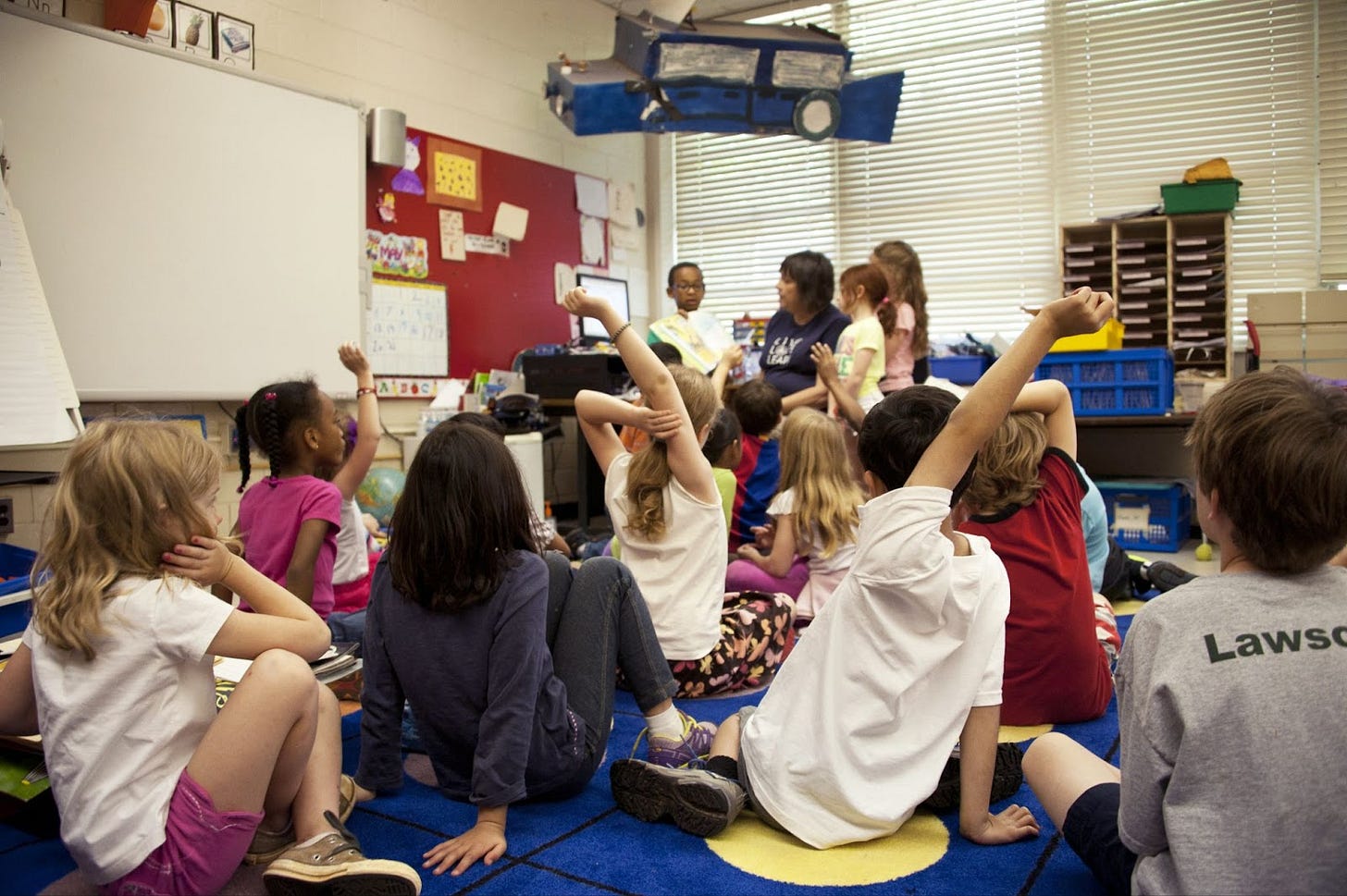Decoding Evaluation in Formal, Informal, and Nonformal Learning Contexts
Welcome to the October 2023 edition of the Improved Insights Newsletter: a newsletter for folks in informal STEM learning spaces who want to learn more about how to measure and communicate the impacts of their work.
I’m Sarah M. Dunifon - a long-time STEM educator, evaluator, and equity advocate. After spending time working in museums, nonprofits, and higher education, I now work on cutting-edge informal STEM learning research and evaluation with my team at Improved Insights. We specialize in informal STEM learning and youth programs.
This monthly newsletter includes tips, resources, and news on informal STEM learning evaluation. We hope you find it valuable! Now, let’s get started —
Decoding Evaluation in Formal, Informal, and Nonformal Learning Contexts
In this month's newsletter, we'll take some time to look at understandings of evaluation in formal vs. informal education spaces, and explore the differences that exist inherently between each. To read the full article, check it out in our Insights. In the meantime, here’s a taste:
When I describe my work to folks in the formal education world, I often find that they are surprised by the significant differences in formal and informal evaluative work. “Evaluation” can mean drastically different things in formal and informal education. In formal education, the focus is often on the performance evaluation of students or teachers, which correlates with school or program funding and promotions. As a result, formal education institutions may have a reluctance to engage an evaluator or could have a fundamental misunderstanding of what I do. Add in my title, “Principal Evaluator,” (no, I don’t evaluate school principals!) and differences in semantics may widen the gap of understanding even further.
This month, I’d like to shed some light on the differing purposes of evaluation within formal and informal evaluative work. First, I’ll briefly explore evaluation through a formal education lens. I’ll then provide a more thorough review of informal education and the evaluation priorities within the informal education world.
[...]
Traditionally, formal education assessment focuses on learning gains within a learner or group of learners, primarily in content knowledge and skill development. Skill development can be in specific subject areas (like STEM skills), cross-curricular skills (like conducting research or evaluating sources), or in other areas like social-emotional learning (SEL) and 21st-century skills. Formal educators are interested in answering questions like: “Are students learning what they need to be learning?” and “Are students where they should be at this point in their education?” Another priority is verifying that the skills students are developing as a result of their classes align with the scope and sequence, and curriculum.
ii Updates
Please join us in celebrating two of team members! We are so grateful to have them on the Improved Insights team.
We're happy to welcome back our former Research & Evaluation Assistant, Carol Martincic, to the Improved Insights team! We’re grateful to have her organizational skills, understanding of the nonprofit world, and equity focus on our team. Said Carol,
"Evaluation work is highly rewarding. It contributes meaningfully to program enhancement, organizational strategy, and the overall success and impact of nonprofits and educational initiatives, making the work deeply fulfilling and impactful."
A big congratulations to Evaluation Assistant Emily Neill, who has been promoted from the role of Administrative Assistant. Emily’s attention to detail, analytic skills, and keen writing ability will add so much value to our projects. When asked how she feels about the transition, Emily stated she is:
“Thrilled to be stepping into a role where I get to flex my analytical skills, and to continue developing my knowledge of evaluation and its real-world applications.”
60-Second Suggestions
Here are a few things that caught our eye this month, usually pertaining to informal STEM education and evaluation, but occasionally some fun personal stuff, too.
The National STEM Challenge is actively seeking students in grades 6-12 who have developed extraordinary STEM projects that bring about positive change to their communities or the planet. The highest-scoring STEM Champions from all 50 states and U.S. territories will have the opportunity to receive recognition at the National STEM Festival in Washington, D.C in April 2024. Students are invited to submit their entries at nationalstemchallenge.com. The submission deadline is November 12th.
This Times Higher Education article by informal learning expert and my classmate at the University of Pittsburgh’s Doctor of Education program, Sirocus Barnes, discusses how universities can create after-school programs that enhance belonging and participation for K-12 students, shaping their lifelong learning experiences. Barnes highlights three key elements that contribute to the success of these programs: fostering positive relationships, offering choices for exploration, and ensuring a sense of belonging.
The Data Science Methods for Digital Learning Platforms certificate program, offered through the University of Pennsylvania Graduate School of Education, is a 16-week free training program designed for individuals with a clear intent to pursue education research, and who have some degree of prior quantitative analysis background. Twenty participants will be selected for the first cohort, which will commence in February 2024. Applications must be received by November 15, 2023.
November 8th is National STEM/STEAM Day! We encourage you to find your own creative ways to celebrate science, technology, engineering, art, and mathematics and to look for opportunities within your communities to elevate STEM learning and education.
Until next time - thanks!


